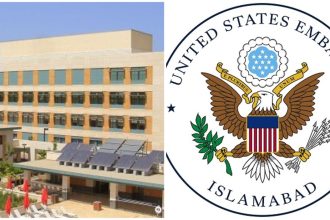The government’s 20% Federal Excise Duty (FED) on beverages, including packaged juices, has failed, leading to no benefits due to declining sales.
The formal packaged juice industry saw a 40% drop in volumes, depriving consumers of healthier options and stunting growth.
Waheed Ahmed, head of the All Pakistan Fruit & Vegetable Exporters, Importers and Merchants Association (PFVA), noted that high taxation and climate change impacts harm the pulp industry’s supply chain. This instability and 38% government taxation have led to a 40% sales drop and reduced growers’ incomes.
The fruit-based beverage industry employs over 100,000 people, has a turnover of Rs100 billion and invests Rs50 billion. Falling sales have led to layoffs and reduced pulp procurement, impacting farmers. No new investments were made in 2023-24, and none are planned for 2024-25.
The growth of the undocumented sector has harmed the formal industry, consumers, and government revenue. The government should reduce or abolish the FED rate and regulate the informal sector. A task force with government and industry representatives can address illicit manufacturers. The FED has made the formal juice business unviable, threatening economic growth, especially in rural areas.
Economic stability won’t be achieved by overburdening those who pay taxes. Progressive taxation, following countries favouring healthier options with natural fruit content, is needed.
Addressing Climate Change and Modernizing Agriculture for Economic Stability
Climate change also threatens Pakistan’s agriculture, causing crop damage, yield losses, and food security risks. Agriculture contributes 21% to GDP, employs 45% of the population, and accounts for 60% of exports. Extreme weather events, like floods and droughts, are increasing.
Waheed Ahmed emphasized that climate change must be addressed to avoid a 30% to 50% decline in agricultural production. He noted shortages in onions and tomatoes, a 50% drop in Kinnow exports, and rising food prices due to unstable supply chains.
In conclusion, the government’s taxation policies and climate change threaten Pakistan’s economy, especially in rural areas. Immediate action is needed to address these issues, promote the formal industry, and regulate the informal sector for economic stability and food security. Reducing or abolishing the FED rate is essential for the formal industry to thrive, along with regulating the informal sector and adopting modern technologies to combat climate change.






